Andrew Anglin
Daily Stormer
April 24, 2015

Matt Parrott wrote a response to my recent series rticles on feminism, and I would like to give a response to his response.
Before I begin, I want to say very clearly that this has nothing to do with “infighting,” but is simply a gentleman’s disagreement. I have a very high level of respect for Mr. Parrott and all others involved in TradYouth, and I feel we can have an open dialogue as comrades without there being any subtext of hostility.
On the whole, Parrott seems confused not only about what it is I am trying to communicate, but what he himself is trying to communicate as well. The understanding he has of my positions on this topic could have come from a feminist report on what I have written rather than a direct reading of my material, and his own position changes drastically in the course of the essay.
I will go through point-by-point and comment, skipping only the introductory paragraphs.
Parrott begins with some kind words about our project here at the Daily Stormer, and then agrees with my position that political spaces should be fundamentally male spaces. He states some facts about the nature of women which I would wholly agree with.
Women, young and old alike, are neither designed nor inclined to develop or encourage politically aggressive subcultures. Women tend to prefer compassion and compromise over conflict, albeit social or physical. Women tend to tag along with the herd rather than staking out their own course. Women tend to be more sensitive to safety and security considerations, with a general attitude of risk-aversion. Women tend to think in terms of people and details rather than abstractions and ideals.
All of these general inclinations make for superior nurturers, superior community organizers, and superior secretaries. But they also make for counter-productive and corrupting distractions from the development of radical subcultures if they’re allowed to set the tone, guide the conversation, or steer the decision-making process.
I could have written all of that myself (though I probably would have used the word “tend” much less). So here we see that we definitely agree more than we disagree, for the time being.
Women are absolutely equal to men in value for our communities and for our cause. They’re complementary halves of our racial whole, and we should strive to respect them, protect them, and go out of our way to put their energy and talent to use for our survival.
Here, we begin to differ slightly as Parrot begins his veer to the left. I would never use the e-word in a discussion of sex, as I believe it is dishonest, a way of pandering to modern sensibilities.
Of course, it is true that in strict biological terms, men and women are both necessary for the continuation of this or any other species which reproduces sexually, but that having been said, women’s abilities in virtually all relevant areas of life outside of those relating to children and keeping house are significantly less than those of men. We also might note that a group of men could clearly survive until they grew old without women, women could not survive at all without men.
“Equality” also implies an equal share of power in society, which should clearly not be the case. All of the power in a society belongs to men.
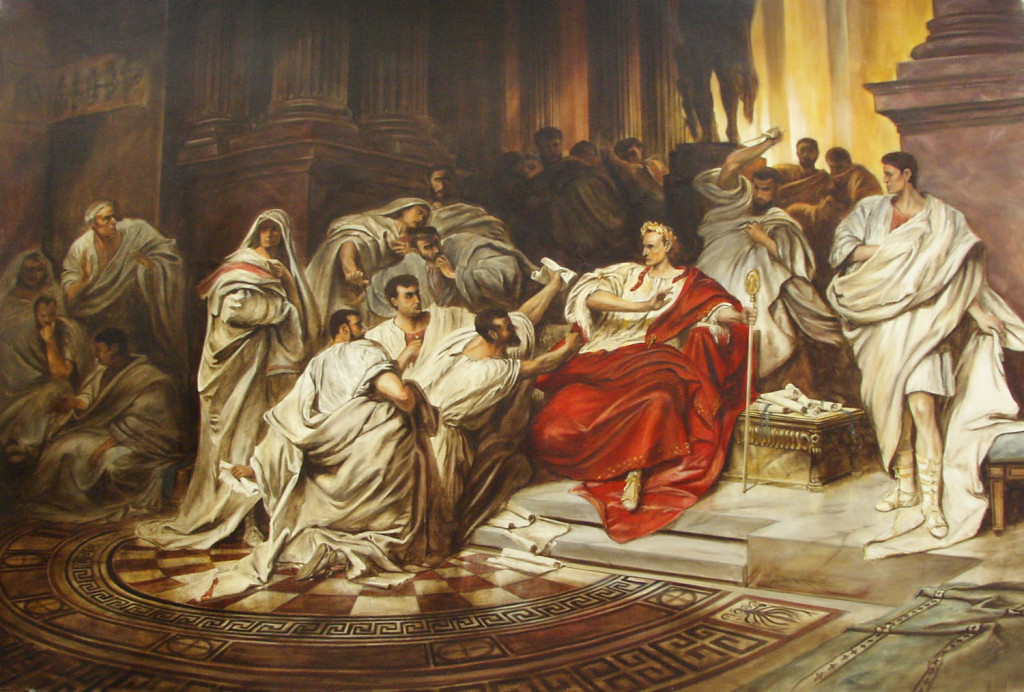
So, though this may partially be an issue of semantics, I don’t feel it is correct to use this liberal buzzword in a discussion of gender roles.
But Anglin’s correct on a fundamental point: Our work is implicitly male at this stage and we can’t afford to waste time trying to make it more comfortable for or inclusive of women. Predictably, he goes astray in his application of this point for the same reason Anglin always misses the mark, because his approach is ultimately secular, modern, and biologically reductionist.
This idea of a secular vs. a religious position is interesting to me, and I would have liked to have heard how my secular stance differs from a religious stance in his perception. Unfortunately, that is not something which Parrott elaborates on. If I were to elaborate on it myself, I would note that Biblical gender norms are the same as any other historical European gender norms and the sort I am promoting. I don’t exactly know where Parrott could have gone with this thread, or why he mentions it at all.
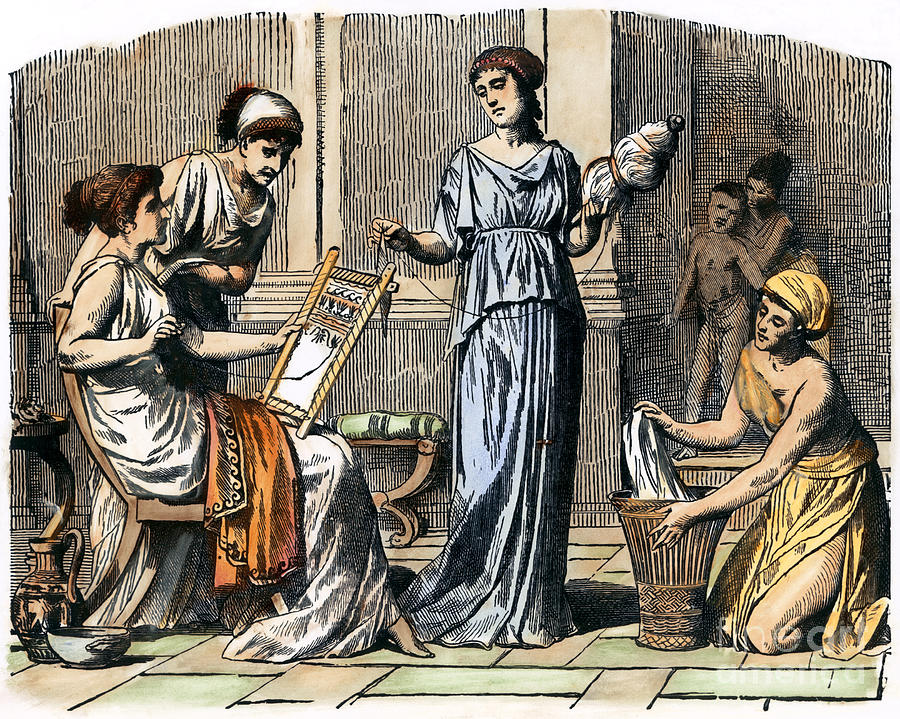
And though I would fully agree that my position on this matter is secular – my official position on all matters is secular, given both that I believe it is only professional and appropriate in the context of politics to focus on the scientific and that my own spiritual belief is that the natural world itself is inseparable from the divine – I see nothing at all “modern” about my own position. I have in fact, repeatedly, used the word “medieval” when describing my perception of appropriate gender roles. Regrettably, Parrott does not elaborate on that accusation either.
In the general framework of Radical Traditionalism, more specifically within the Christian Traditionalist framework, a dynamic has been developed wherein men are trusted and expected to lead in political matters while women are afforded complementary opportunities which are every bit as vital to our long-range success.
I would need a citation on this, as Parrott is apparently claiming the authority of a “radical tradition” which I am not aware exists. When we speak of “tradition” (whether “radical” or otherwise) we are generally talking about a consistent historical precedent, and I dare say there is no historical precedent whatsoever for the position that women are “every bit as vital” as men to the success of a political agenda. We could go all the way back to ancient Greece and all the way up through the industrial revolution and have a very hard time finding a single man who would not burst out laughing if you claimed that women were vital to your political agenda.
My own position – which is absolutely backed up by consistent historical precedent – that is, tradition – is that women are irrelevant to the success or failure of a political agenda, assuming they are barred from being involved in politics. If they are involved in politics, then they are at best a hindrance, at worst devastating.

Of course, women have been a part of the Jewish cultural Marxist agenda to break down society, but this is categorically different, as this was a psychological and sociological war of destruction. The Jews have built absolutely nothing, and have used women in the political realm for the purpose of tearing down existing social and moral structures within our society. And, suffice to say, there is nothing traditional about cultural Marxism.
Simply borrowing from the “manosphere” and its groupthink to arrive at our approach to gender relations is as toxic as imbibing the implicitly feminist and egalitarian approach to gender relations which secular women who happen to be pro-white generally expect.
I’m unclear about what is meant to be communicated here. What specific concepts from the manosphere are we referring to? How does “groupthink” relate? How could anything be as toxic egalitarianism?
Elaboration is needed here, though none is given. Instead we are left with vague insinuation (the core theme of Parrott’s essay).
A synthesis of insights from tradition, from the manosphere, and from the small but growing number of complementary feminine traditionalist projects is necessary, one which discards both the feminization of contemporary Christianity and the misogynist resentment of MRA culture.
Here we see that Parrott agrees, apparently, with certain aspects of the manosphere, while as noted above, disagrees with others. Still nothing specific.
He also mentions tradition, which I believe should be the sole place from where our ideals of gender relations are drawn; anything that I appear to have borrowed from the manosphere (I have used some of their terminology, simply because accepted definitions of terms are helpful when conveying larger concepts) were elements of traditional gender ideals which are a part of the manosphere.
Lastly, he mentions “feminine traditionalist projects,” but gives no examples of what those are. Without knowing what they are, I cannot comment, though I can say I would be sceptical about anything which would be defined that way.
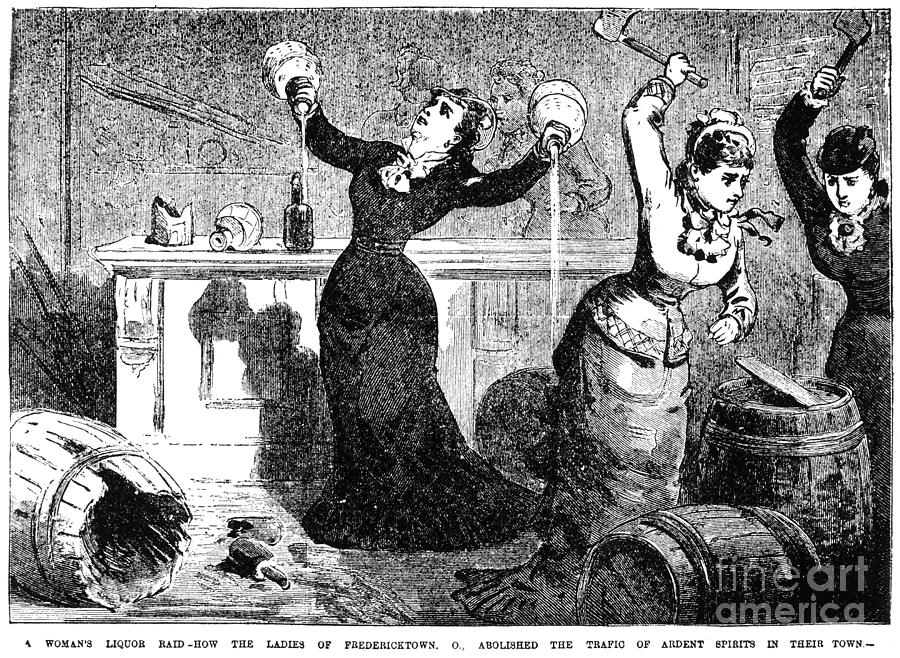
He wants to discard feminized contemporary Christianity, which is good, but then he speaks of the “misogynist resentment of MRA culture,” which is yet another thing which needs elaborated on. The word “misogyny” is so meaningless to me that I won’t even comment on it. “MRA culture” does contain a lot of men who are resentful towards women, generally with good reason. The problem with discussing “resentment” in the context of a discussion of political and social ideas is that resentment is an emotion, not a political or social concept. One can say something while feeling resentment or while not feeling resentment and it doesn’t change the truth or falsehood of what is being said.
This having been said, I do not resent women, which Parrott may or may not have been suggesting. I find modern women shameless, ridiculous and disgusting, but these are simply observations. And though my personal emotions towards women are not relevant, because Parrott has brought up emotions, I will say that when looking at the modern woman, there is one emotion which I feel strongly and that is pity.
We could use more white girls supporting our projects and standing with our men, but we can’t and won’t achieve that by catering to them, propping up tokens, or watering down our message to make it more female-friendly.
This is fair enough, I suppose, depending on how we would define “supporting,” and I of course agree with keeping the message centered on men. Though as we will see, Parrott will later disagree with this statement he’s made here and accuse me of being a “misogynist” for “driving women off.”
There’s a small contingent of white girls who are genuinely willing to marry and support men who have chosen a life of conflict with the system and sacrifices for the cause, but the drummer from Def Leppard can count them on his fingers.
Here we seem to be missing a core concept, which is a theme throughout this shifting essay. What a woman wants at a certain time is as relevant as the weather on a certain day. Expecting that you can base decisions on what a woman says she wants is like expecting you can buy your entire wardrobe, for the rest of your life, based on whether or not it is raining the day you go to buy it.
With a man, you can expect that if he is using logic in a manner you find to be sound, the odds are he will continue to use logic in that same manner. His positions may change, but those changes in position will be based (all things being equal) on processing new information, or a new situation, with the same logical mechanism. A woman’s position at any given time is based on her emotions, and her emotions are subject to environmental influence, meaning you as an individual have extremely limited control over what position she holds at any given time.
This is the core of the problem with women, Matt.
The largest influences on her emotions, and thus on her political and ideological positions, are those which dominate the environment.

When you have a society which is good and righteous, the default position of the woman is to follow the norms of that society and behave in a way which is good and righteous. She can be swayed the other way by desire or influence, but it is not the default, and she will be naturally driven back towards the society’s norm.
Conversely, when you have a society which is twisted and unnatural, the default position of the woman is to follow the norms of that society and behave in a way which is twisted and unnatural. She can be swayed the other way by desire or influence, but it is not the default, and she will be naturally driven back towards the society’s norm.

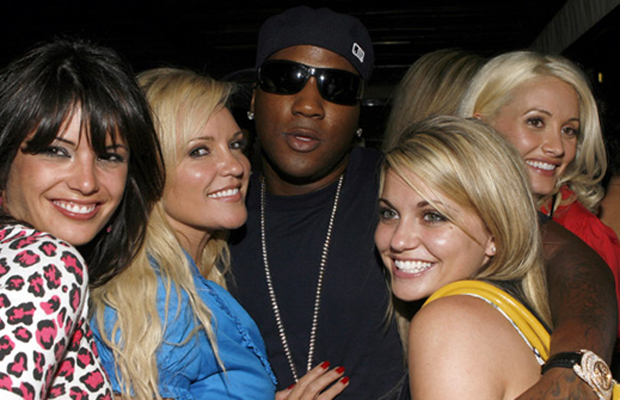
As such, there is no logical reason to ever place faith in the declared political or ideological values of a woman. Instead, you should simply assume that her value system will be the value system of the system.
So, as I have argued, saying #NotAllWomen is unhelpful, and simply shows a reluctance to accept the basic nature of female biology.
Being a political soldier in today’s environment is pretty much antithetical to being an ideal mate for most women. You’re not going to be “settled,” you’re not going to be financially secure, you’re not going to be respected by mass society.
I don’t know if that is true or untrue. Rebelliousness is a form of power, and power is what women are after more than anything else (security, money and respect are all forms of power), so it may be that women will be attracted to men involved in this scene. But that isn’t really the point of this discussion, and this is a non-sequitur.
Women in our scenes should stop nagging about the relative lack of “suitable” mates, because the problem can’t be resolved to their satisfaction at this time. The system systematically degrades, humiliates, and marginalizes the men who stand up against it. All things being equal, judging matters objectively, young women looking for a mate will be able to find a more settled and suitable mate outside of our subcultures. And that’s fine. Go.
Again, I don’t personally know the truth or untruth of these statements, and do not view it as important to this discussion, or even very important in a more general sense.
There shouldn’t be women in our scene in the first place unless they are already someone in our scene’s girlfriend or wife. My argument would be that it is men who should be looking for partner’s elsewhere, if they desire a partner, as the type of woman who shows up on the Nazi scene is unlikely to be stable for the simple fact that she is engaging in an unnatural behavior by rebelling against the norm (there may be exceptions – I don’t know or care, in all honesty).
Conversely, it is the natural behavior of a woman to adopt the belief system of a man she is involved with, as that is a method of supporting the man.
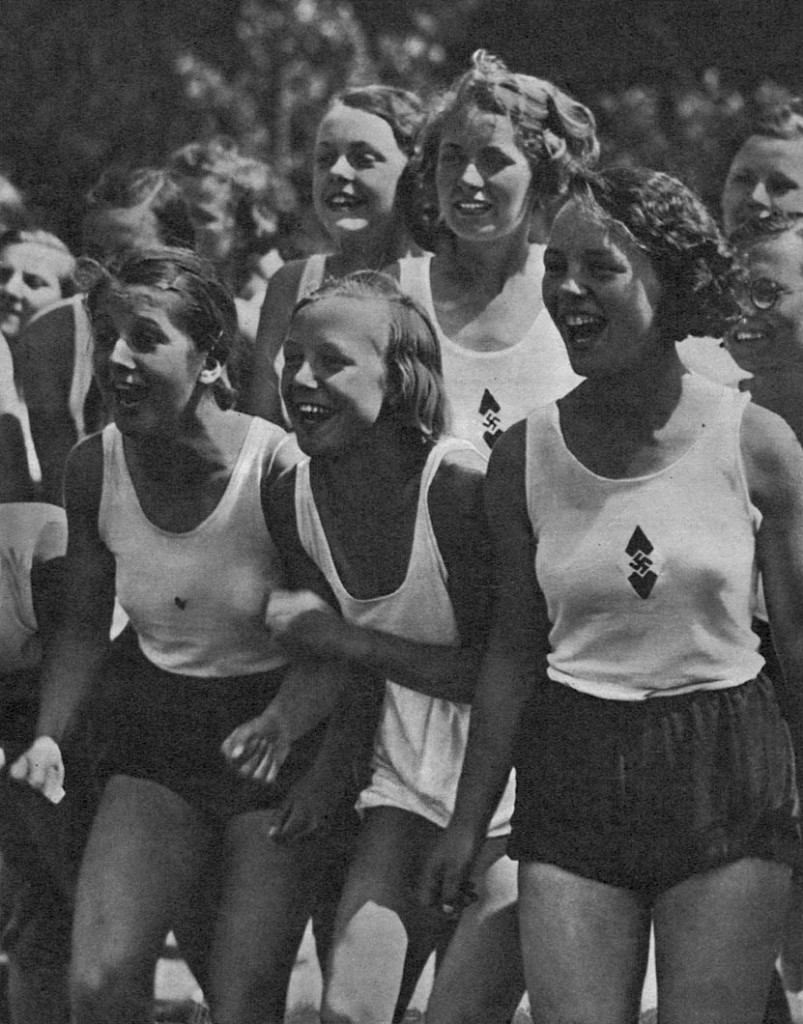

A woman who is excited about a Nazi scene because her mate is is something natural, while a woman who claims she is interested because she decided she believes in it through her own logical mechanisms is probably dangerous or deviant in some way. Unless she is subconsciously looking for a man, in which case that is fair enough, but not something that we should be tolerating.
The few who are willing to make that sacrifice because they value the political soldier’s courage and commitment to the cause over material comfort deserve a great deal of gratitude and respect not only from their partners but from the entire dissident subculture, but the women who aren’t willing to make that sacrifice have a duty to stop complaining about the situation and go marry any one of the numerous men out there who quietly agree with our positions while refusing to make a public stand.
The only place wherein a woman will ever make a sacrifice is for her children, period. If she is involved with a political soldier, it is because she perceives power there. Power is what produces good children and what protects them, and so power is the only thing a childless woman desires. All romantic notions aside, this is just the reality.
Methinks that challenging this assertion of mine would have made a much more meaningful article, as it seems to be the core of what Parrott disagrees with, but rather than address it and offer a counter-argument, he has merely danced around it, misconstruing things I’ve said and repeating things I’ve already addressed without acknowledging that I’ve addressed them.
At a certain point, several years from now at the least, our dissident subcultures will hopefully develop to a critical mass point where women can have their cake and eat it too, finding mates who are settled and capable of offering them a comfortable life, while also enjoying high social status. Until that happens, things will carry on like they’re carrying on now, with pro-white men complaining that not a single pro-white woman will have them and pro-white women complaining that none of the dozens of men who will have them are up to their standards. That’s okay. Not all men could or should reproduce, and they should actively avoid marriage to women who insist on dropping their dissident work as a precondition for courtship.
Continuing with the non-sequitur here.
I’m trying to go point-by-point here, but I don’t really have any response to this. Seems like meaningless lecturing. The solution would be to do away with the concept that there is such a thing as “pro-White women,” and accept that women are not political creatures, and that if a woman is claiming to be pro-White, she is after something.
I am not familiar with the phenomenon of these allegedly “pro-White women” complaining about not being able to find a mate, but I will take Parrott on his word that this is happening. A woman saying that is obviously actually saying “I am looking for a man, are any of you men that man?” More likely than not, she would be of the “I’m a hard woman to handle, I’m outspoken and opinionated and you need to be a real man to be able to tame me” variety, which is the worst variety of woman, a modern phenomenon which has crawled up out of the sewer of the feminist project (then again, she might be okay, and genuinely looking for a man with strength, but I don’t personally care).

Engaging a woman saying something like this as if she is presenting a serious complaint which needs addressing can only be looked at as a form of insanity.
Reproducing is important, but our political work is more important than marriage if the two are to be juxtaposed, as they typically are. The man who heroically sacrifices himself so that white families can thrive is more needful and necessary at this point in our struggle than a man who has and raises children. Both are important work, but the implicitly feminine and biological reductionist attitude that we must all breed and must make whatever compromises we need to make in order to breed must be rejected. The men who perished at Thermopylae made a greater contribution to the replication of their genome than the men who stayed behind with their wives.
Glad to see Parrott is on-board with this point (at least while typing this paragraph). I’m more than fed-up with the ongoing “White nationalist” chant of “do your duty and have babies!”
We indeed have important work to do which does not involve our penises.
Personally, I don’t believe that implicitly male spaces like Daily Stormer should disrespect white women or drive them out. It’s not necessary or constructive.
I have engaged in neither disrespect or driving out. I have, unemotionally, stated my positions and backed them up as well I could.
Note the change in Parrott’s position from above, where he stated the message should not cater to women, and here now states that it should. He would, presumably, say that he is not saying that the message should be catered to women, but claim that I have specifically tried to drive women away. However, this would be false, as my writings attest. All I have done is given a perspective on the biological nature of women, as well as stated the belief, based on available data, evolutionary biology, historical precedent and personal observation, that women do not belong in politics.
All they need to do is confidently and consistently remain implicitly male in their leadership, focus, and rhetoric. Websites aren’t tantamount to war rooms or initiatic leadership circles, and I believe Anglin’s recent aggressively misogynist effort to drive women off is unnecessary and less than honorable.
“Aggressively misogynist effort”? He does do not qualify this, or give any specifics as to what he is referring to. And I would have to assert that it is less than honorable to claim that I am less than honorable without specifying exactly why you believe this to be the case.
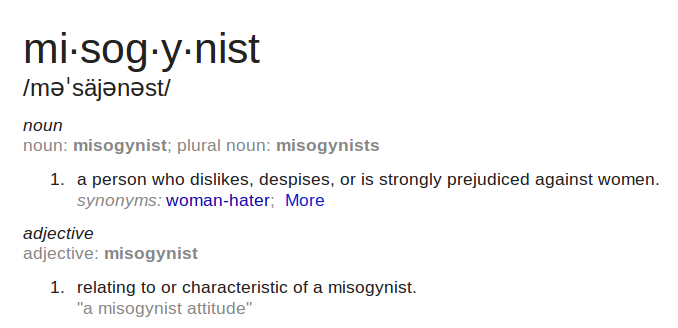
Again, this entire piece strikes me as a frantic jig around an elephant in the room which is my position on the biological nature of women, and the fact that Parrott does not wish to address it. Instead of addressing it, he repeats things I’ve already said, repeats arguments I’ve already addressed, lectures both men and women on proper mate selection and finally insults me.
There is absolutely nothing in this article which serves to forward a discussion on the topic this article was ostensibly written to address, which is my own view on gender roles. (Truly, this single sentence could have been my entire response to this essay.)
Plenty of women enjoy and constructively participate in implicitly male spaces. From time to time, women will come along who insist on making the space implicitly female, and they can be ignored or driven off on a case-by-case basis.
I don’t agree that there is room for the implicit in what we are collectively attempting to accomplish, and so I have explicitly chosen explicitness.

But again, this is just saying something I’ve already addressed while pretending I’ve not addressed it. My question for those claiming that women have something to offer the political realm was explicit: I asked what they could possibly offer. The gentlemanly thing to do here would have been to give a direct response to that question. We already know that a lot of people are saying “they can constructively participate” but thus far no one has said how. And I have asked: how?
Because I am a traditionalist, Matt, and to me, as a traditionalist, the unqualified assertion that women have a role to play in politics appears patently absurd. I have asked for that assertion to be qualified and explained in specific terms. It may be I don’t completely disagree with it, even (I have, for instance, not banned women from commenting on my site), but in order to comment further, I will have to know exactly what it is Parrott is talking about.
He may also wish to respond to the assertions I have made about the problems involved with including women in male spaces, which I went into in some detail in my FAQ about feminism and masculinity, and which anyone who has ever been in a workplace with women is fully aware of. They cause absolute chaos, on purpose, in order to make themselves a center of attention.
It has nothing to do with making the space “implicitly female” – what would that even look like? – they certainly don’t try to make everything about babies, cooking and nail polish. They want to exploit and break down the male dynamic in order to serve their own emotional needs.

Along with this, male-bonding is something which has been brutally attacked by through feminist idea of egalitarian inclusion Parrott is presenting. Male-bonding is the root of male identity, and thus of masculinity, and masculinity is the root of authority, authority the root of a healthy society. And it is entirely necessary for a right-wing political movement to have its roots in a sense of camaraderie between men. Both women and homosexuals destroy that when they are allowed to interfere.
So, when Parrott explain these as of yet completely unknown but assuredly vast benefits of having women in our political movements, I do hope he makes sure to explain how these outweigh the negatives.
There’s an important and operative difference between confidently asserting one’s masculinity and one’s implicitly male spaces…and disrespecting or degrading what’s female and feminine. Women are good for much more than making sandwiches and babies, and some of the most talented and dedicated advocates I’ve worked with over the years have been women. In fact, it’s not uncommon for them to have more physical and social courage than the average white guy. White girls are, love it or hate it, generally more assertive and less submissive than non-white girls, and we can’t simply borrow an Oriental approach to gender relations because our women aren’t Oriental.
I am not clear on what he is attempting to communicate here. Masculinity, necessarily, involves dominance over women – this is an inarguable fact, emotions surrounding it don’t matter, they are programmed by the modern system and our baby-boomer mothers. It does not involve disrespecting women, or femininity. I would assert that by attempting to include women in male spaces, Parrott is the one disrespecting femininity, given that it is extremely degrading to a woman to allow her to participate in such things, even if she claims she wants to. Again, one look at the modern workplace should make this explicitly clear.
You’ll note that Parrott is now claiming that women should be involved in political activism, whereas above he appeared to claim that this was a man’s role. He is also apparently claiming that politics is a feminine activity, after claiming above that it isn’t.
All throughout history, up until the last hundred years, White women were expected to behave as Asian women presently behave or they would have been subjected to physical discipline. Regardless of whatever emotional response we may have to this historical fact, it remains an historical fact. It would be degrading to both myself and Mr. Parrott for me to list citations here. Reading any history of the role of women in European society before the 19th century and we are going to see the exact same thing: women were expected to serve a specific role in society in a sphere completely separate from the world of men.
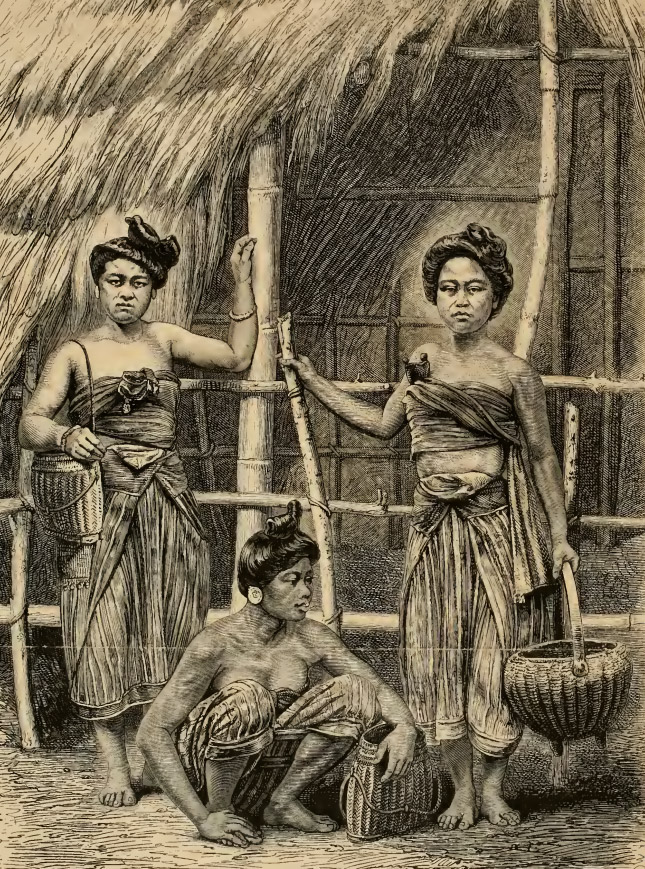
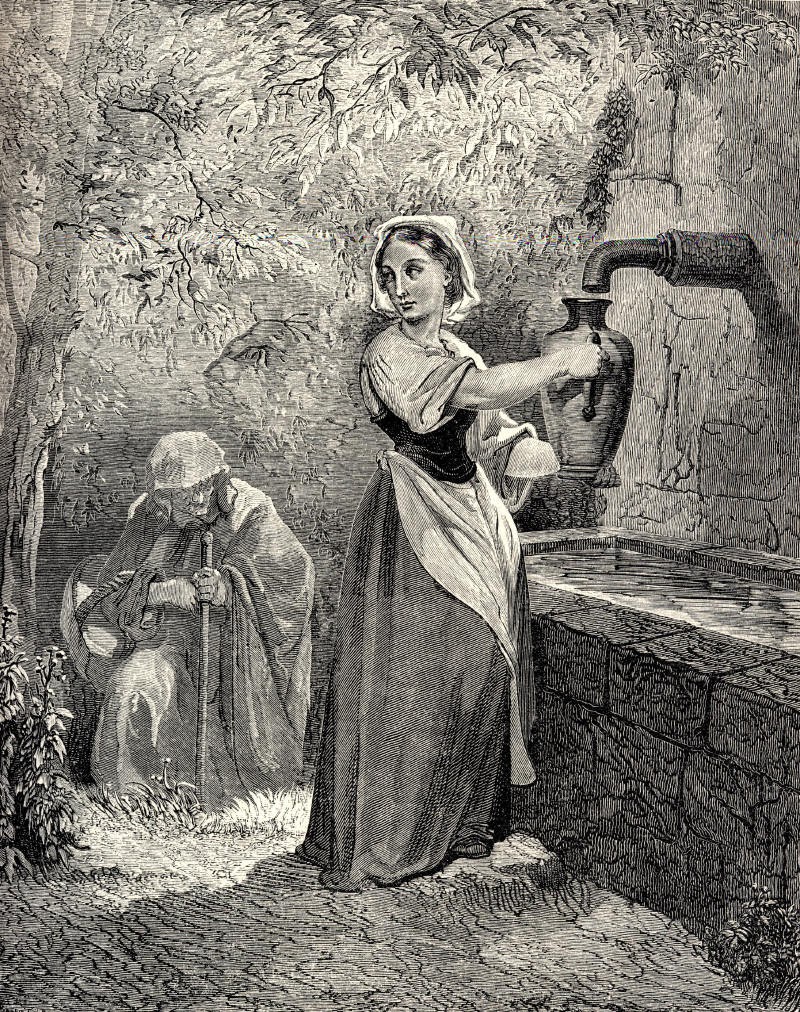
Parrott suggested above that his position is based on tradition and mine is not. In reality, he has simply paid lip-service to traditional gender roles by saying “yeah, genders are different, women shouldn’t be involved in politics” before going on to say the exact opposite, that they should be involved in politics and that it is feminine for them to be involved in the realm of politics, after already conceding politics is a masculine realm, “because, hey – we don’t want our women acting like gooks, just running around giggling, cooking, making babies and serving men’s needs – they should be out on the streets doing political activism because they’re assertive and strong-willed empowered creatures.”
It’s all a bit silly, Matt.
Implicitly male spaces rather than explicitly male spaces or explicitly gender neutral spaces are vital for the success of our dissident subcultures, as the risk-affinity, boldness, and social courage expected in those circles will naturally attract two kinds of women who are critical to our success; women who are seeking to be helpmeets of men with high status in those dissident circles and women who can and will thrive in and contribute to an implicitly male environment.
These are incredibly extreme claims, drawn directly from Marxist philosophy and going against all historical precedent and basic common sense, claims which Parrott starts his closing paragraph with after having offered no arguments at all to support them.
While the mere presence of women does categorically entail that some women will test those boundaries, the answer is to strengthen the boundaries, not to drive off all the women. After all, even if you drive out all the women, there are more than enough men who are risk-averse, easily taboo-triggered, and mortified by the prospect that somebody, somewhere, might give them the stink eye at the water cooler if they find out he believes his people have a right to exist.
So, the final closing statement is that we need women because men are too big of cowards to do their own political activism. He also appears to be suggesting that I don’t want women involved because I believe they are cowardly, something which I have never claimed or insinuated in any way, and which does not even make sense to me.
If it is true that men are such pathetic cowards that we have to rely on women to do our political activism for us, the best option is definitely just to give up.
Fortunately, I don’t believe that is the case, and know that by taking a traditional position on gender roles all we are going to do is strengthen a movement which is almost entirely male to begin with.

In conclusion, I found Matt Parrott’s essay highly disappointing, given that it came across as so fundamentally dishonest, failing to address any of my points, avoiding the core concept of my anti-feminist presentation, distorting what I said for the purpose of making it easy to attack. I also found the technique of beginning with an argument and then shifting that argument into the opposite argument by the end of the essay very weird.
I will give Mr. Parrott the benefit of the doubt, however, and assume that he himself is still working through these issues in his own mind. It is hard to believe that he would have knowingly posted an article which has opposite positions at the beginning and end of it, so I must assume he is experiencing a bit of cognitive dissonance, attempting to find some middle ground between tradition, which he speaks quite highly of, and his own Marxist programming, which he probably has a hard time admitting he still suffers from. Regrettably, no such middle ground exists, and one must choose between tradition and Marxism.
The first step for Matt will be to acknowledge that my position is the historical precedent and that his position is much closer to Marxism than it is to anything which could be called “traditionalism.” An infinite number of vague insinuations and allegations of “misogyny” cannot change this objective fact. After accepting this as fact, he can then decide for himself whether or not he wants to embrace certain aspects of Marxist philosophy or reject it all, but at least we can have a real and open discussion of the topics without all of the unnecessarily confusing rhetorical acrobatics wherein somehow feminism is a part of “radical Christian traditionalism.”
I look forward to Mr. Parrott’s response and clarifications.
